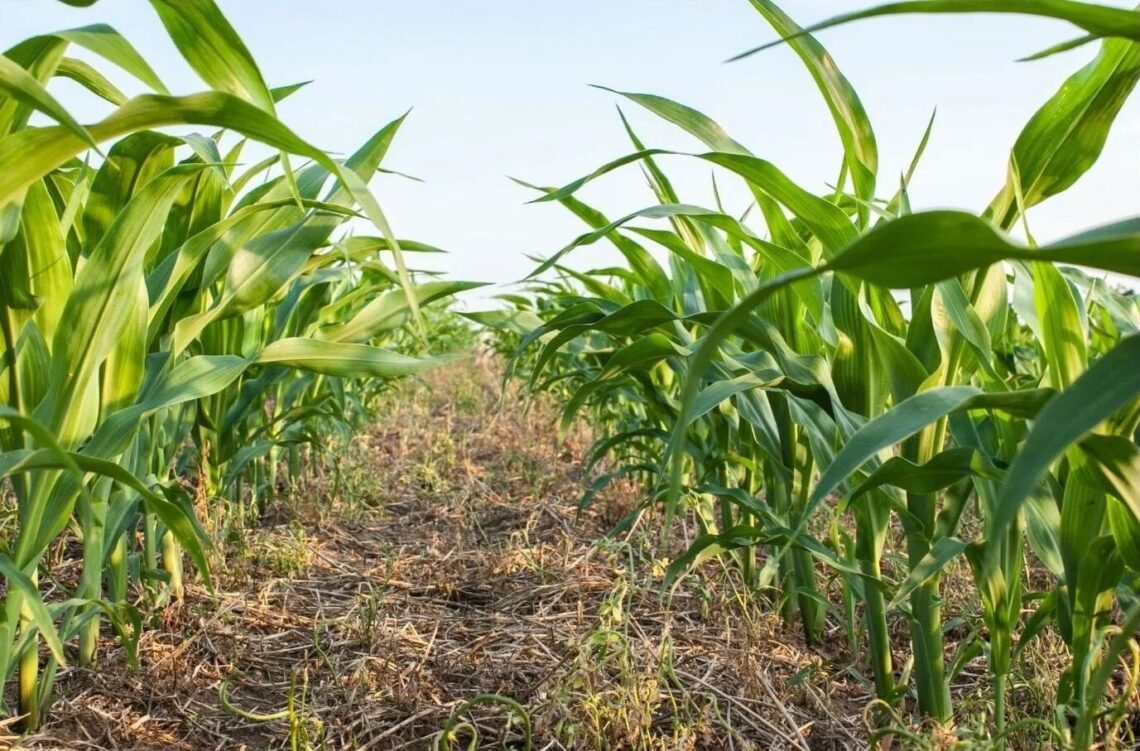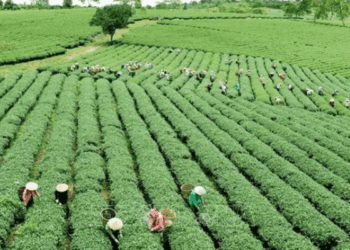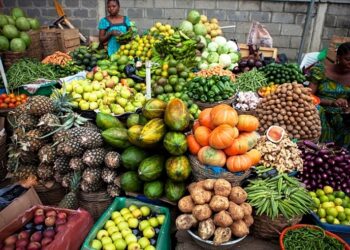For generations, Nigerian soil has been exhausted by years of unrelenting use. Overfarmed and undernourished has made it lost much of its vitality, threatening not only yields but the nation’s food security itself.
In October 2025, the federal government announced a decisive response to this growing challenge. The launch of the Nigerian Farmers Soil Health Scheme (NFSHS) in Abuja marked a new chapter in the country’s agricultural journey towards regenerative agriculture anchored in science, data and a renewed respect for the land.
According the the minister of state for agriculture and food security, Aliyu Sabi Abdullahi Nigerian soils have been working without rest, with giving and giving while farmers rarely stopped to ask how they were doing.
He noted that the NFSHS was a cornerstone of the government’s Renewed Hope Agenda, designed to reverse years of soil degradation and improve farm productivity.
The innovation seeks to end the widespread guesswork that has long defined fertiliser use across Nigeria, where farmers apply generic blends without knowing what their specific soils actually need. The result has been waste, pollution, and diminishing returns.
Under the new scheme, that uncertainty will give way to precision. Each farmer will receive a Soil Health Card, a personalised report detailing the soil’s nutrient profile and recommending the right type and amount of fertiliser for each crop and location.
The NFSHS is as ambitious as it is practical. The plan calls for the establishment of 774 soil testing laboratories, one in every local government area.
The minister explained that these local hubs will make scientific soil testing accessible to farmers nationwide, while creating new jobs for rural youth and women as laboratory technicians and field advisors.
Supporting this network is a digital backbone: the Nigeria Soil Information System (NiSIS). The platform will collect and analyse soil data from across the country, generating a comprehensive, real-time map of Nigeria’s agricultural potential. Policymakers, researchers, and investors will, for the first time, have a unified database to guide evidence-based agricultural planning.
The benefits, the minister explained, are far-reaching. Smarter fertiliser use will lower production costs, raise yields, and increase farmer incomes. Environmental impacts will also be curbed, with reduced groundwater contamination and lower greenhouse gas emissions linked to fertiliser misuse.
The NFSHS is not an untested concept. It builds on pilot soil assessments already carried out in 11 states across Nigeria’s six geo-political zones, supported by development partners including GIZ, the World Bank, and the Bill & Melinda Gates Foundation.
The early results have been striking. According to the minister, pilot studies have shown the potential to double yields across key crops. Rice production could rise from 60 to as high as 160 bags per hectare, while maize and wheat yields could also double. Onion farmers, in particular, might see their harvests jump from 400 to 800 bags per hectare.
“This is not just about better farming, it’s about national prosperity, about putting more food on every family’s table,” the minister added.
To ensure sustainability, the scheme will operate under a Public-Private Partnership (PPP) model, with oversight committees at national, state, and local levels. This structure is designed to keep implementation efficient, inclusive, and responsive to farmers’ realities.
Beyond its technical ambitions, the NFSHS reflects a moral shift in how Nigeria values its land and the people who till it.
“The Nigerian Farmers Soil Health Scheme is not just about science, it is about giving farmers the right tools and knowledge to succeed. It is about respect for the soil, and for those who work it”, Sabi said.
With the launch of this initiative, Nigeria is not merely investing in better harvests, it is investing in the health of its future. By listening to the land and empowering those who nurture it, the country is charting a sustainable path toward food security, resilience and renewed hope in the very soil beneath its feet.





